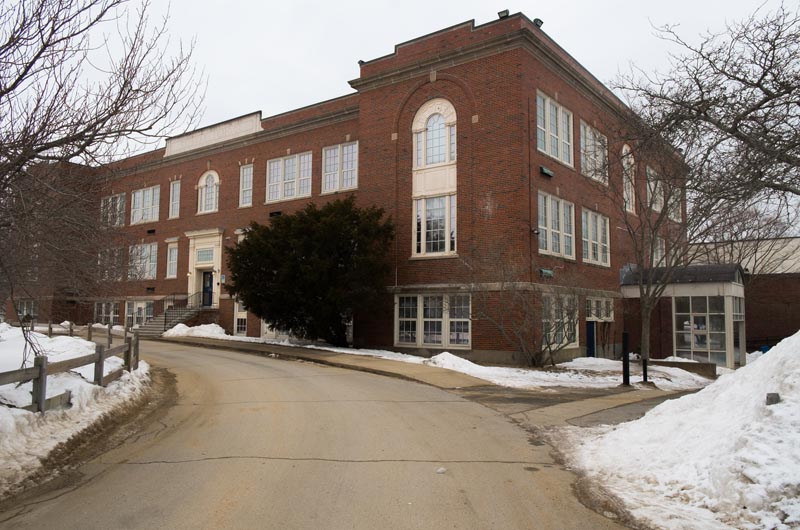As part of an effort to address a deteriorating school building and a growing student population, the Tisbury school committee will apply again for state funding to renovate the Tisbury school.
The school applied last year to receive funding from the Massachusetts State Building Association, but learned in December that it had not made the list to receive money from the organization.
School committee chair Colleen McAndrews said during a meeting last week that the support of the town would be crucial in order for a school project of any sort to move forward. Wednesday’s meeting brought together members of the town financial advisory committee, planning board, and board of selectmen, as well as school superintendent James H. Weiss and assistant superintendent Matthew D’Andrea.
“Obviously, budgets are tough and we have to be financially sensitive,” Mrs. McAndrews said.
The Tisbury School building was constructed in 1929 and is the oldest elementary school building on the Island. Enrollment as of last October was 324 students in grades kindergarten through eight.
Discussions about how best to address the need to upgrade the facility have been ongoing since 2011. A feasibility study produced in 2012 provided a number of options, which included relocating the school, renovating the current building, and expanding the current building. At the time, cost estimates were about $40 million.
In order to address immediate priorities, a new roof was put on the school last fall.
Other concerns remain, such as an updated heating, ventilation and air conditioning system, space for English Language Learner programs, a new kitchen and cafeteria, and additional classroom space.
“The school will be the biggest single project we undertake for a long time,” selectman Jonathan Snyder said Wednesday. “It’s important we get it right. How much money do we put in now if we think we’re going to replace it in the future?”
Planning board member Dan Seidman questioned the need for a total overhaul and a bigger school, saying a larger building would require more maintenance and be more costly in the long run. Mr. Seidman said it would be more economical to focus on work that could be done , such as addressing the need for ELL space and a new kitchen. He suggested a modular expansion might be one possible way of addressing the space needs, but did not think that the overall square footage of classrooms needed to be increased.
“I think all of those things can be done, and I think they can be done by us,” Mr. Seidman said.
Selectman Melinda Loberg pointed out that the overall construction of the building was structurally sound despite its maintenance needs.
“If the school moves, the building is still an asset,” she said. “The physical problems...we’re still going to have to fix them, no matter what.” She suggested developing a comprehensive needs list, to work on one item at a time if the MSBA funding did not work out.
A successful initial application to the MSBA allows a school to move forward for funding consideration but does not guarantee any money. If the Tisbury School were to advance past the first round and be approved for funding, the MSBA would then help direct how to spend the money based on their assessment of building needs.
Mrs. Loberg asked when the town would be able to have input.
“They’re not going to make a pledge if the town isn’t behind it,” school principal John Custer said. “The local commitment must be demonstrated.” He said that as he understood it, parties would work together during the design process, which would be funded by the town.
“We would hope...if there’s a chance that we do get accepted then we would have serious support from the town,” Mrs. McAndrews said.
“If your son or daughter decides to go to Stanford and gets accepted, now you make the decision,” finance committee chair Larry Gomez said. “This is where we are.”
Planning board member Ben Robinson said developing a list of priorities was still important.
“We need to make decisions before we get accepted,” he said.
Mrs. McAndrews emphasized continuing collaboration. “The school committee cannot do this alone,” she said.









Comments (2)
Comments
Comment policy »